- No. 2 Street 623D, Phuoc Long B Ward, Thu Duc City, HCMC, Vietnam
- Admin@CTCinternimex.com
Harmful Effects Of Improper Cashew Consumption
The Hidden Dangers of Incorrect Cashew Consumption: A Comprehensive Expert Guide
Cashews, with their distinctive buttery flavor and exceptional nutritional value, have become an indispensable part of many diets, from daily snacks to versatile culinary ingredients. However, few realize that even this "superfood" harbors significant risks if not consumed correctly. This article will delve into the common adverse effects, provide in-depth knowledge, and offer practical advice to help you maximize the benefits of cashews safely and effectively.
1. Cashew Allergy: A Hidden, Serious Threat Not to Be Overlooked
Cashew allergy is one of the most severe adverse reactions, potentially leading to dire consequences if not addressed promptly. It's an immune system response where the body's immune system reacts to specific proteins in cashews, identifying them as harmful substances.
- Allergic Mechanism: When a sensitive individual consumes cashews, their immune system releases chemicals like histamine, triggering a range of symptoms from mild to severe.
- Typical Symptoms:
- Mild Reactions: Tingling or itching in the mouth and throat; hives, rash, or swelling on the skin; swelling of the lips, face, tongue, or throat.
- Severe Reactions (Anaphylaxis): Difficulty breathing, wheezing, choking due to airway swelling; dizziness, lightheadedness; nausea, vomiting, diarrhea, abdominal pain; and in extreme cases, anaphylactic shock, leading to a severe drop in blood pressure, loss of consciousness, and potential fatality if not treated immediately.
- At-Risk Individuals: Those with a history of allergies to other tree nuts (such as almonds, walnuts, pecans, hazelnuts) or peanut allergies are at higher risk of developing a cashew allergy.
- Expert Advice: If you have a history of nut allergies or have never eaten cashews before, start with a very small amount and monitor your body's reaction. Always carry emergency medication (like epinephrine) if you've been diagnosed with a severe allergy. Carefully check product labels to ensure cashews are not an ingredient if you have an allergy.
2. Uncontrolled Weight Gain and Obesity: A Consequence of Overconsumption
Cashews are known for being a rich source of energy, but this very characteristic can be a double-edged sword if you don't control your portion sizes.
- High Energy Density: Just 28 grams of cashews (about 18-20 whole nuts) contain approximately 150-160 calories and a significant amount of healthy fats. Although these are good fats, consuming them excessively will lead to an intake of calories that exceeds your body's needs, resulting in the accumulation of excess energy as fat.
- Lack of Portion Control: Due to their delicious taste and "addictive" quality, many people easily exceed the recommended intake without realizing it, especially while watching movies or working.
- Nutritionist's Advice:
- Adhere to Portions: Limit cashew consumption to about 18-20 nuts per day.
- Balanced Combination: Cashews should be part of a balanced diet rich in green vegetables, fruits, lean protein, and whole grains.
- Calculate Total Calories: Always consider your total calorie intake from all food sources throughout the day to avoid exceeding your daily calorie limit, especially if you are trying to lose weight.
3. Digestive Issues: When Benefits Become a Burden
Cashews are an excellent source of fiber, essential for a healthy digestive system. However, consuming too much fiber at once can have counterproductive effects.
- Fiber's Impact: The insoluble fiber in cashews helps enhance bowel movements and prevent constipation. But when a large amount is consumed, the body may not be able to process it quickly enough.
- Symptoms: Bloating, abdominal distension, indigestion, cramping, and even diarrhea in individuals with sensitive digestive systems or Irritable Bowel Syndrome (IBS).
- Expert Advice:
- Gradually Increase Fiber Intake: If you're not accustomed to a high-fiber diet, introduce cashews into your meals gradually to allow your digestive system to adapt.
- Drink Enough Water: Water is a key factor in helping fiber move easily through the digestive tract and alleviating uncomfortable symptoms.
- Pay Attention to Your Body's Reaction: If you experience discomfort after eating cashews, reduce the amount or temporarily stop consumption and observe.
4. Kidney Stone Risk from Oxalates
Cashews contain oxalates, natural compounds found in many plants. For most people, oxalates don't pose a problem. However, for those with a history of kidney stones, this can be a concern.
- Mechanism of Stone Formation: Oxalates can combine with calcium in urine to form calcium oxalate crystals – the most common type of kidney stone.
- At-Risk Individuals: People with a history of kidney stones, especially calcium oxalate stones.
- Doctor's Advice: If you have a history of kidney stones, consult your doctor or a dietitian about the appropriate amount of cashews and other high-oxalate foods you should consume. Drinking plenty of water is also crucial to dilute the concentration of stone-forming substances in your urine.
5. High Blood Pressure Due to Salt in Roasted Salted Cashews
Natural (dry-roasted) cashews contain no sodium and are beneficial for heart health due to their potassium, magnesium, and unsaturated fats. However, roasted salted cashews are a completely different story.
- High Sodium Content: To enhance flavor, roasted salted cashews are often generously seasoned with salt (sodium chloride).
- Impact on Blood Pressure: Excessive sodium consumption is a leading cause of high blood pressure, increasing the risk of cardiovascular diseases, stroke, and chronic kidney disease, especially in salt-sensitive individuals or those with pre-existing hypertension.
- Expert Advice:
- Prioritize Plain Roasted Cashews: Opt for unsalted cashews or roast them yourself at home with minimal salt.
- Check Product Labels: If buying roasted salted cashews, carefully read the nutrition label to choose products with the lowest sodium content.
- Limit Overall Salt Intake: Consider your total daily salt intake from all food sources.
6. Urushiol Poisoning from Unprocessed Raw Cashews
This is one of the lesser-known but extremely dangerous risks if you attempt to process raw cashews yourself.
- What is Urushiol? Raw cashews, particularly the shell and the layer between the kernel and the hard outer shell, contain a toxic resin called urushiol. This is the same compound that causes allergic reactions in poison ivy and poison oak.
- Symptoms of Poisoning: Direct contact with urushiol can cause severe contact dermatitis, characterized by intense itching, swelling, blisters, burning sensations, and potential infection if left untreated. Inhaling smoke from burning raw cashews can also lead to severe respiratory irritation.
- Actual Risk: Commercially sold cashews (whether roasted, dried, or "fresh") have undergone complex heat treatment processes to completely remove urushiol, ensuring they are safe for consumption. The risk only arises if you attempt to process raw, unshelled cashews at home without proper knowledge and protective gear.
- Expert Advice: Always purchase processed and packaged cashews from reputable suppliers. Never attempt to roast or process raw, unshelled cashews at home.
Cashews are an excellent and nutritious nut, offering numerous health benefits such as improved heart health, bone support, increased energy, and antioxidant properties. However, to fully enjoy these benefits without risk, it's crucial to consume them consciously and correctly.
Read more:
CTC International Import Export Joint Stock Company (CTC Internimex JSC) is a company specializing in the processing, production, and export of agricultural and forestry products from Vietnam to all over the world.
With nearly 20 years of experience in manufacturing and trading, we are committed to providing you with:
- The best quality products to meet all technical requirements.
- Quality assurance as per your requirements, with third-party inspections by SGS, Vinacontrol, Intertek, etc.
- The best prices.
- Optimized transportation costs and safe cargo through the use of reliable and experienced freight forwarders.
- Diverse shipping methods (EXW, FOB, CNF, CIF, DDP, etc.)
- Various payment methods (TT, L/C, etc.)
👉👉 We update the prices of various agricultural products every Monday.
You can refer to them at this link: Vietnam Agri-Exports: Weekly Price Updates
*** If you need to learn more about any specific product, please contact us right away. We are ready to assist you whenever you need us.
✨Big Promotion From Ctc Internimex Jsc For You 🌏✨
Partner With Ctc Internimex Jsc And Receive Even More Special Offers:
🍀 Free Sample
🍀 We Will Help You Get Import Tax Exemption
🍀 Oem Processing / Custom Design
🍀 Cheap Shipping👉👉 More details here: Big promotion from CTC internimex JSC for you
Contact our team of experts today for assistance with product information, competitive pricing, and logistics solutions for Vietnamese agricultural products.
Contact Information:
- Head office: No. 2 Street 623D, Phuoc Long B Ward, Thu Duc City, HCMC, Vietnam
- Hotline/WhatsApp: (+84) 944 772 339 / (+84) 393 887 377
- Email: Admin@CTCinternimex.com
- Search on Google Maps: Here
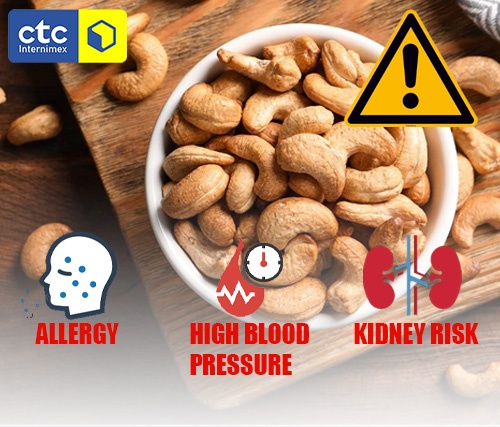 Harmful Effects Of Improper Cashew Consumption
Harmful Effects Of Improper Cashew Consumption
Cashews are nutritious nuts, widely loved for their delicious flavor and high nutritional value. However, if not consumed correctly, cashews can also cause undesirable side effects. This article will help you understand more about the potential harms and how to use cashews properly to maximize their benefits.
Chia sẻ:


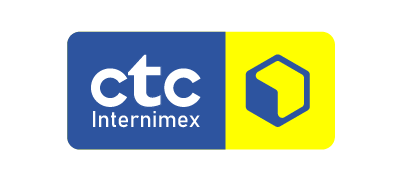

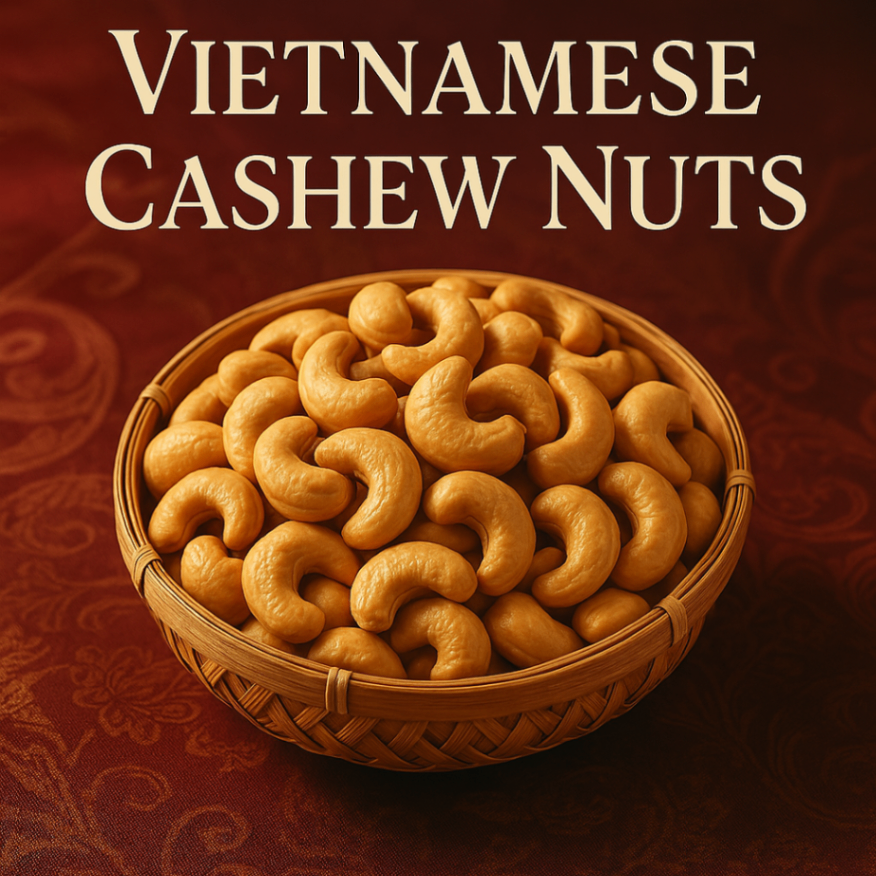


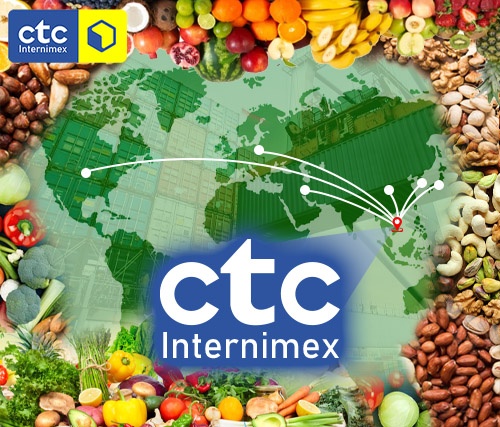
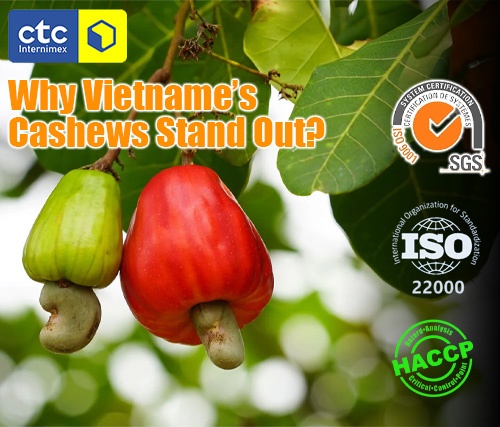




Comment